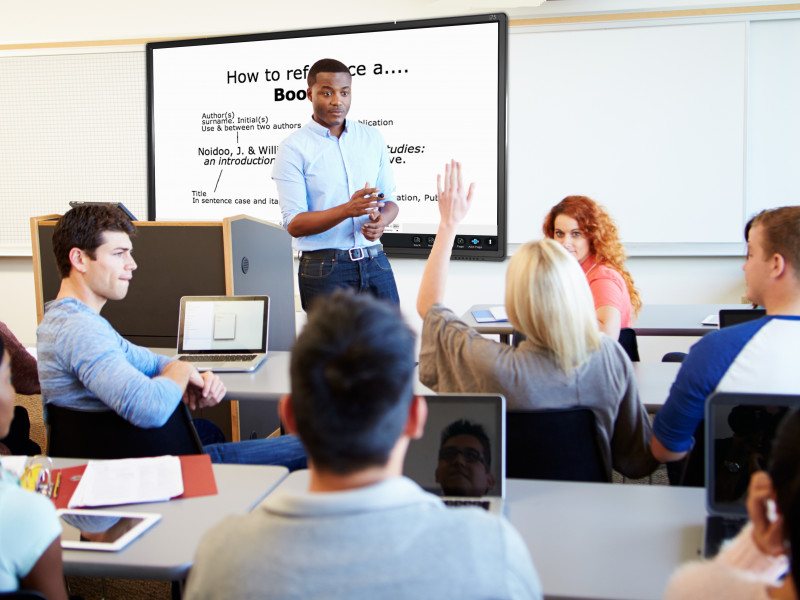The field of education has evolved significantly over the past century, transitioning from traditional classroom-based instruction to a dynamic ecosystem incorporating technology, pedagogy, and global perspectives. Education today is not just about transferring knowledge; it is about fostering critical thinking, creativity, and lifelong learning skills that prepare students to navigate an increasingly complex world. The way education is delivered, accessed, and assessed continues to transform, creating both opportunities and challenges for educators, learners, and policymakers.
The Evolution of Education
Historical Development
Education has a long and diverse history, shaped by cultural, social, and technological changes. In the early stages, learning was informal, often occurring within families or apprenticeships. Key developments over time include:
- Classical education: Focused on reading, writing, arithmetic, and moral instruction, laying the foundation for literacy and numeracy.
- Industrial-era schooling: Standardized curricula and formalized institutions emerged to prepare citizens for industrial labor markets.
- Modern pedagogy: Emphasizes critical thinking, problem-solving, and student-centered learning.
These historical shifts demonstrate how education has adapted to societal needs while maintaining a focus on intellectual development.
Rise of Technology in Education
The introduction of technology has transformed education into a more interactive and accessible experience. Tools such as computers, digital learning platforms, and interactive whiteboards enable new forms of instruction. Innovations in educational technology have allowed for:
- Distance learning: Expanding access for students in remote or underserved areas.
- Personalized learning: Tailoring instruction to individual student needs and learning styles.
- Interactive content: Engaging students through multimedia, gamification, and simulation-based learning.
Technology has bridged gaps in access and created opportunities for more dynamic learning experiences.
Key Components of Effective Education
Curriculum Design and Development
A well-structured curriculum ensures that learners acquire essential knowledge and skills. Important aspects include:
- Competency-based learning: Focuses on mastery of specific skills rather than time spent in class.
- Interdisciplinary approaches: Encourages integration across subjects to promote critical thinking.
- Flexibility: Adapts to emerging knowledge and societal demands, preparing students for future careers.
Curriculum design is central to achieving meaningful educational outcomes and fostering lifelong learning.
Teaching Methods and Pedagogy
Effective teaching methods directly impact student engagement and comprehension. Modern pedagogy emphasizes:
- Active learning: Students participate actively through discussions, projects, and problem-solving activities.
- Collaborative learning: Group work and peer-to-peer instruction enhance understanding and social skills.
- Adaptive teaching: Instructors adjust approaches based on student performance and feedback.
Pedagogy today is increasingly learner-centered, moving away from rote memorization to skills-based instruction.
Assessment and Evaluation
Assessment practices determine how effectively learning objectives are met. Current approaches include:
- Formative assessment: Continuous feedback to guide learning during the instructional process.
- Summative assessment: Evaluates overall understanding at the end of a course or term.
- Alternative assessments: Portfolios, presentations, and project-based evaluations encourage practical application of knowledge.
Assessments are essential not only for grading but also for shaping instructional strategies and improving outcomes.
Emerging Trends in Education
Online and Blended Learning
Online and blended learning models have become integral to modern education. They offer:
- Flexibility: Students can learn at their own pace and schedule.
- Access to resources: Global access to lectures, research, and digital libraries.
- Enhanced interaction: Online forums and virtual classrooms enable collaboration beyond geographical limitations.
These models demonstrate the shift from traditional classrooms to more inclusive and adaptable learning environments.
Gamification and Interactive Learning
Gamification integrates game-like elements into education to boost engagement and motivation. Benefits include:
- Increased participation: Students are more likely to engage with interactive and competitive learning activities.
- Immediate feedback: Game-based learning provides instant results, enhancing skill acquisition.
- Enhanced retention: Interactive elements make learning more memorable and practical.
By making education engaging, gamification promotes deeper understanding and application of knowledge.
Artificial Intelligence in Education
Artificial intelligence (AI) is reshaping how educators teach and students learn. Applications include:
- Adaptive learning systems: AI analyzes student performance and adjusts content accordingly.
- Predictive analytics: Helps identify at-risk students and informs targeted interventions.
- Automated grading and feedback: Saves time for educators while providing timely responses to students.
AI has the potential to personalize education at scale, improving outcomes for diverse learners.
Inclusive and Equity-Focused Education
Ensuring equitable access to quality education remains a global priority. Strategies include:
- Specialized support: Tailoring instruction for students with learning disabilities or unique needs.
- Cultural competency: Incorporating diverse perspectives into curricula to foster inclusion.
- Policy initiatives: Government programs promoting access to education for marginalized communities.
Inclusive education enhances social cohesion and ensures that all learners can reach their full potential.
Challenges Facing Modern Education
Technological Disparities
While technology enhances learning, access remains uneven. Students in underfunded areas may face:
- Limited access to devices and reliable internet
- Insufficient training for educators in digital tools
- Digital literacy gaps among students
Addressing these disparities is crucial to prevent widening educational inequality.
Student Engagement and Motivation
Maintaining engagement is a persistent challenge. Factors influencing motivation include:
- Over-reliance on passive learning methods
- Lack of real-world application or relevance
- Social and psychological factors affecting focus and participation
Innovative teaching methods and personalized approaches are key to sustaining student interest.
Changing Workforce Needs
The modern workforce demands skills beyond traditional academics, including:
- Critical thinking and problem-solving
- Digital literacy and technical skills
- Collaboration and communication
Education systems must evolve to prepare students for dynamic job markets and emerging careers.
Future Directions in Education
Lifelong Learning and Continuous Development
Education is increasingly viewed as a lifelong process. Individuals are expected to:
- Continuously update skills to remain competitive in their careers
- Engage in professional development and certifications
- Embrace informal and non-traditional learning opportunities
Lifelong learning fosters adaptability, resilience, and personal growth in a rapidly changing world.
Education Policy and Reform
Effective policy and reform are essential to shaping the future of education. Key areas include:
- Funding for technology integration and teacher training
- Curriculum updates aligned with future workforce needs
- Accountability measures to ensure quality and equity in education
Policies must balance innovation with accessibility to ensure sustainable improvements.
Global Collaboration in Education
International partnerships enhance educational quality and opportunities. Benefits include:
- Exchange programs fostering cross-cultural understanding
- Shared resources and research collaboration
- Development of global competencies for students
Global collaboration prepares learners to operate effectively in interconnected economies and societies.
FAQs About Education
What is the role of technology in modern education?
Technology enhances access, engagement, and personalization, enabling more dynamic and effective learning experiences.
How can educators improve student engagement?
By incorporating interactive methods, real-world applications, and personalized learning strategies.
What are the challenges of online learning?
Challenges include access disparities, maintaining motivation, and ensuring meaningful interaction.
Why is inclusive education important?
Inclusive education ensures all students, regardless of background or ability, have equal opportunities to succeed.
How does lifelong learning benefit individuals?
It allows individuals to adapt to changing job markets, acquire new skills, and pursue personal growth.
What future skills should education focus on?
Critical thinking, digital literacy, problem-solving, collaboration, and adaptability are essential for the future workforce.
The modern education system is a dynamic and evolving landscape influenced by technology, pedagogy, and global trends. From personalized learning to inclusive practices, effective education requires thoughtful planning, innovative strategies, and a commitment to equity. Understanding these developments equips educators, students, and policymakers to navigate challenges and seize opportunities in shaping the future of learning.



